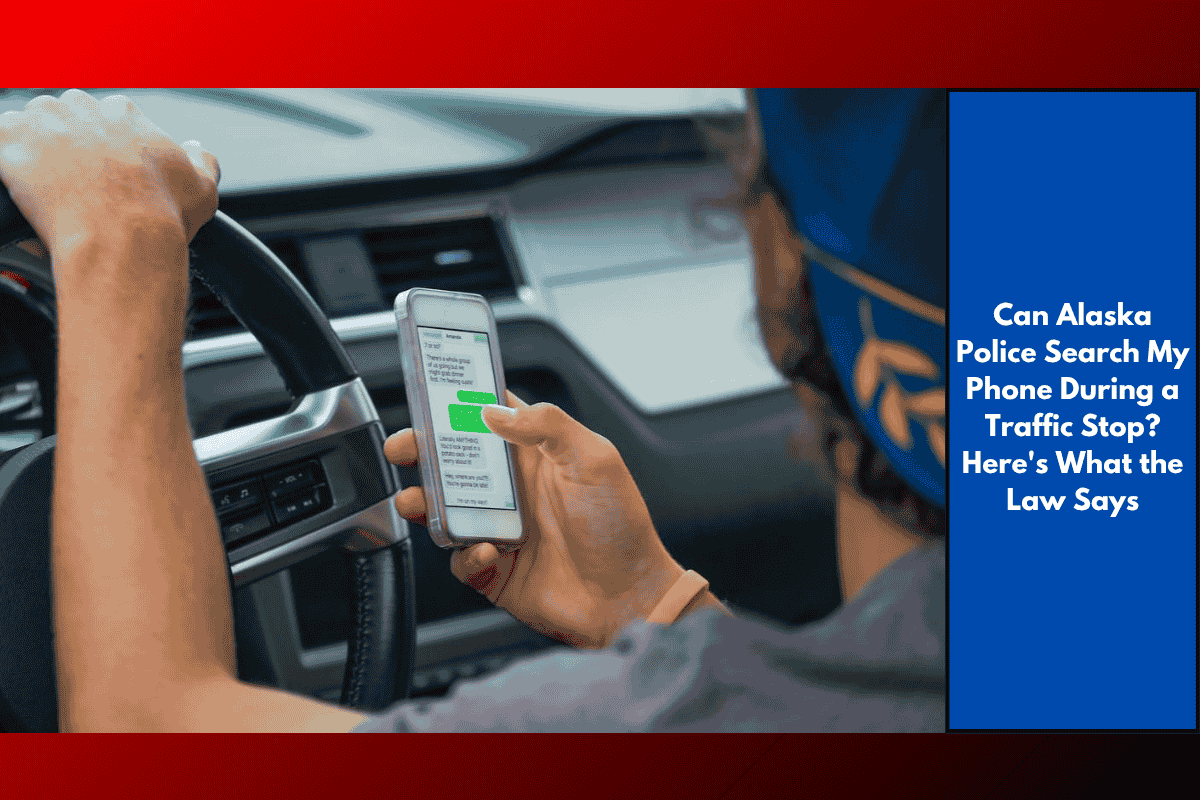Being stopped by the police during a traffic stop can be a stressful experience, and many people are unsure about their rights, especially when it comes to their personal property like cell phones. If you’re stopped in Alaska, one common question is: Can police search your phone during a traffic stop?
The short answer is no, not without a warrant or your consent. However, there are exceptions that might allow police to search your phone under specific circumstances. Understanding your rights during a traffic stop is important for protecting your privacy and ensuring you don’t unknowingly give up your legal protections.
The Fourth Amendment and Privacy Rights
Under the Fourth Amendment of the U.S. Constitution, you have the right to be free from unreasonable searches and seizures. This means that, in most cases, law enforcement needs a warrant based on probable cause to search your phone. However, there are some situations where a warrant may not be necessary.
In 2014, the U.S. Supreme Court ruled in Riley v. California that police need a warrant to search your cell phone, even if they have arrested you. This landmark decision recognized that modern cell phones store vast amounts of personal information, making them more private than typical items that can be searched during an arrest.
Can Police Search My Phone at a Traffic Stop in Alaska?
The key issue in determining whether police can search your phone during a traffic stop is whether they have probable cause or your consent.
Probable Cause: If police have a reasonable belief that your phone contains evidence of a crime, they may be able to search it without your consent, but only in very limited circumstances. For example, if they suspect your phone is being used in connection with criminal activity (such as texting while driving), they may seize the phone but still need a warrant to search its contents later.
Consent: If you give the police permission to search your phone, they can legally do so. However, it’s important to note that you have the right to refuse consent. If the police ask to search your phone, you can politely decline, and they cannot search it without a warrant.
Exceptions to the Warrant Requirement: In rare cases, such as if there is an immediate threat to public safety or a need to preserve evidence, police might be able to search your phone without a warrant. However, these exceptions are limited and must be justifiable under the law.
What If I’m Arrested?
If you are arrested during the traffic stop, police may take your phone as evidence or for safekeeping. However, as established in Riley v. California, the police cannot search the phone without a warrant, even if you’re under arrest. They can seize the phone, but they must get a warrant to look through the data stored on it.
How to Protect Your Privacy During a Traffic Stop
Don’t consent to a search: If the police ask to search your phone, you have the right to say no. Politely tell the officer that you do not consent to the search.
Know your rights: Be aware of the law and your rights. If you feel your rights are being violated, you can always consult with an attorney after the stop.
Keep your phone locked: If you’re concerned about privacy, keep your phone locked with a PIN, password, or biometric lock (fingerprint or facial recognition). Police generally cannot compel you to unlock your phone, though there may be exceptions under certain circumstances.
In Alaska, police cannot search your phone during a traffic stop without your consent or a warrant, except in certain circumstances. While police can seize your phone during a stop if they have probable cause or if it’s part of an arrest, they need to get a warrant before searching its contents. Understanding your rights and knowing when you can refuse a search can help protect your privacy during traffic stops and beyond.
SOURCE
[1] https://collincountymagazine.com/2025/06/16/can-alaska-police-search-my-phone-during-a-traffic-stop-heres-what-the-law-says/
[2] https://alaskabar.org/youth/school-days/rights/phones-and-computers/
[3] https://alaskabar.org/youth/law-enforcement-and-crime/encounters-with-law-enforcement/searches/
[4] https://alaskapublic.org/news/2024-03-25/alaska-house-votes-to-give-police-warrantless-emergency-access-to-cellphone-location-data
[5] https://www.acluak.org/en/know-your-rights/what-do-if-youre-stopped-police














